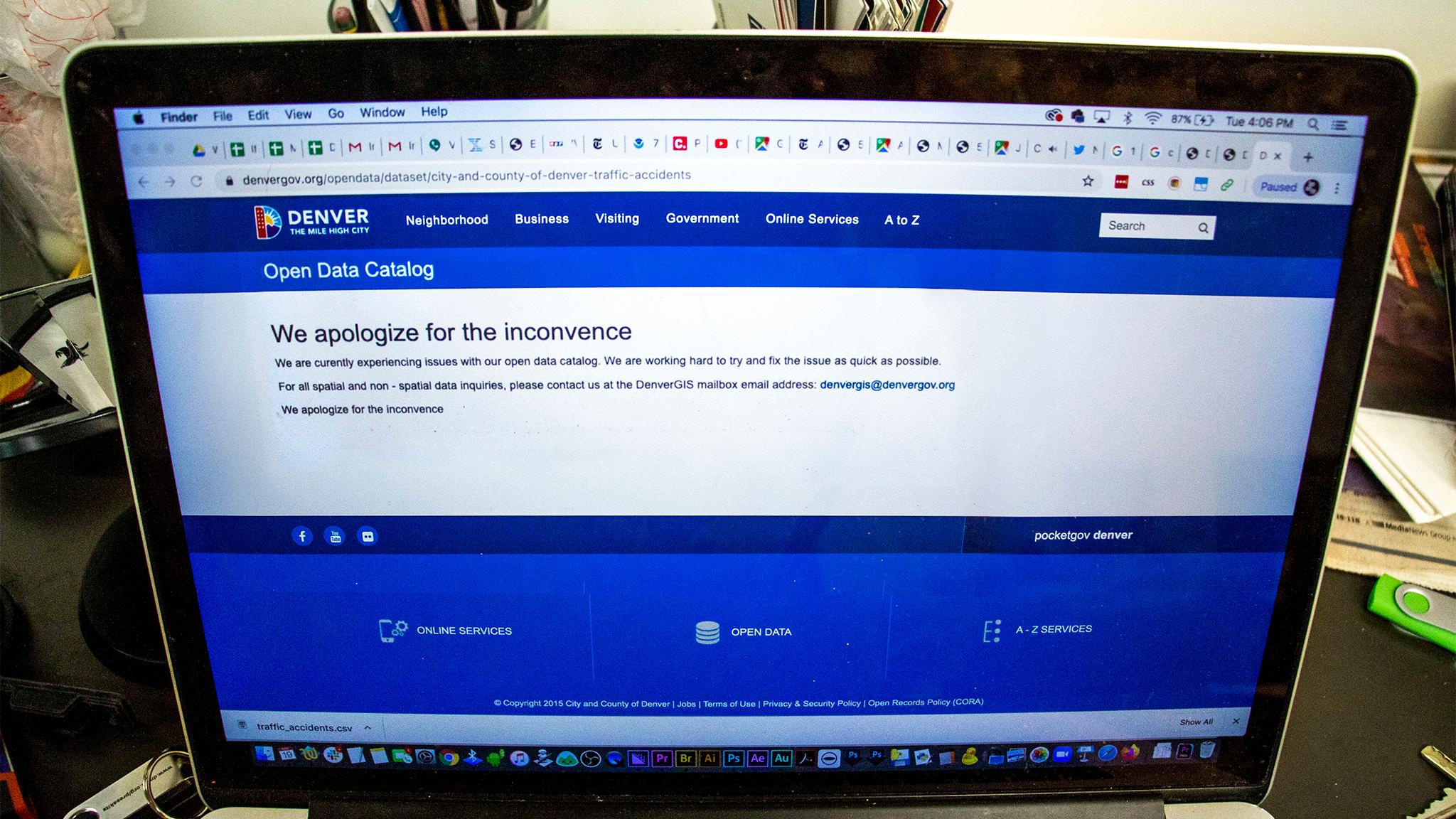Millions of publicly available data points about Denver's government disappeared last Friday after the website that hosted them went dark. The city's open data catalog reappeared Tuesday, apparently after Arvada's government renewed the domain name.
The database is a one-stop shop for reams of information both granular and meta. The public can access data about crime, city finances, traffic crashes, travel expenses -- 250 data sets are available to rifle through.
But on Nov. 15 the website for OpenColorado, the nonprofit that hosted the catalog, went dark, along with publicly accessible data for the City and County of Denver. The website domain expired. Scott Primeau, who co-founded the nonprofit in his spare time, told Denverite he has not been a part of the organization for years.
Apparently the Arvada government was picking up the bill for Denver's -- and their own -- open records database. Chelsea Warren, a spokesperson for Denver Technology Services, said the domain lapsed without Arvada officials realizing it. Denver's open data catalog returned Tuesday after Denverite began reporting the story.
Denver government officials did not announce the blackout.
No law exists that requires Denver to post the data online, but at this point, it's a widely accepted best practice for governments.
"It's pretty industry-standard," Warren said.
Jeffrey Roberts, executive director of the Colorado Freedom of Information Coalition, said the city probably should have announced the blackout to the public "for people going in and wondering what's going on."
Publicly available data has been key for members of the public who use it in innovative ways that governments haven't thought of yet, according to Roberts.
Denver's data department noticed the blackout, then got working on building a version of the catalog in-house.
"I would say it was something that was going to happen eventually, we're just getting pushed to do it now," said Warren, who said the current database is somewhat clunky.
Making public data more accessible is one of the reasons Mayor Hancock's administration hired a chief data officer, she said.
"They certainly have not published all of their data by any means ... but it's encouraging that Denver is doing it in-house," Roberts said.














